Signify and BASF’s Vegetable Seeds Business join forces
Vertical farming projects are now sprouting up all over the world. Signify and BASF’s Vegetable Seeds Business are actively involved with these types of projects. They have emphasised the importance of specifically focussing as much of a vertical farming project on the consumer’s needs and requirements as possible. Both parties are looking into how they can strengthen and support each other here. The development of specific seeds for vertical farming projects represents the ultimate envisioned dot on the horizon. Signify has identified a key role for Dutch Greenhouse Delta in setting up new coalitions and collaborations which can promote vertical farming projects.
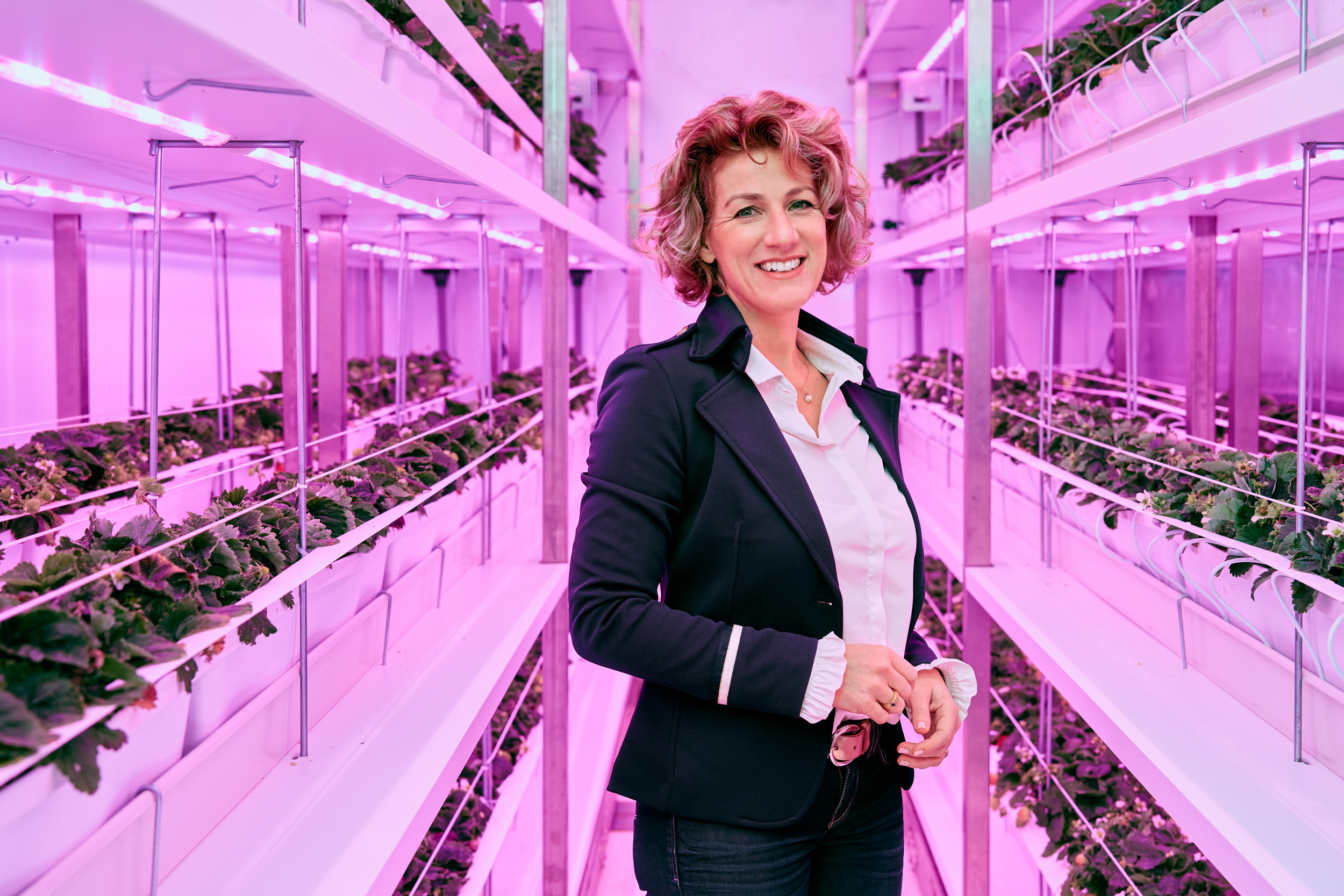
The Philips GrowWise research centre, located within the High Tech Campus in Eindhoven, represents the beating heart of Signify’s vertical farming activities. LED light recipes and cultivation systems are tested here in a variety of different climate chambers for cultivation without daylight in a closed environment. Things like taste, ingredients and shelf life are all closely scrutinised here. “We’re definitely now seeing a constantly growing interest in vertical farming,” according to Ellis Janssen, Global Director of City Farming at Signify. The City Farming division forms part of the company’s HortiCulture LED Solutions business unit, which specialises in LED lighting. “Not particularly surprising: cultivation in a controlled environment certainly offers a multitude of advantages. It enables you to grow close to where it will eventually be consumed, which means you have far fewer food miles. Because cultivation takes place in a closed system, diseases do not play a role and you can therefore grow in a cleaner way.
In addition, according to Anne Jancic, Global Segment Manager for City Farming at Signify, vertical farming also offers the ‘luxury’ of being able to specifically focus on whatever the next party in the chain needs or wants. “You can completely control the climate, as there are literally no external influences. This will allow a producer to make the exact product the consumer or the next party in the chain wants. You can, for example, very specific focus on taste, ingredients, shelf life or colour. We’re also adjusting our light and growth recipes for vertical farming in line with this.”
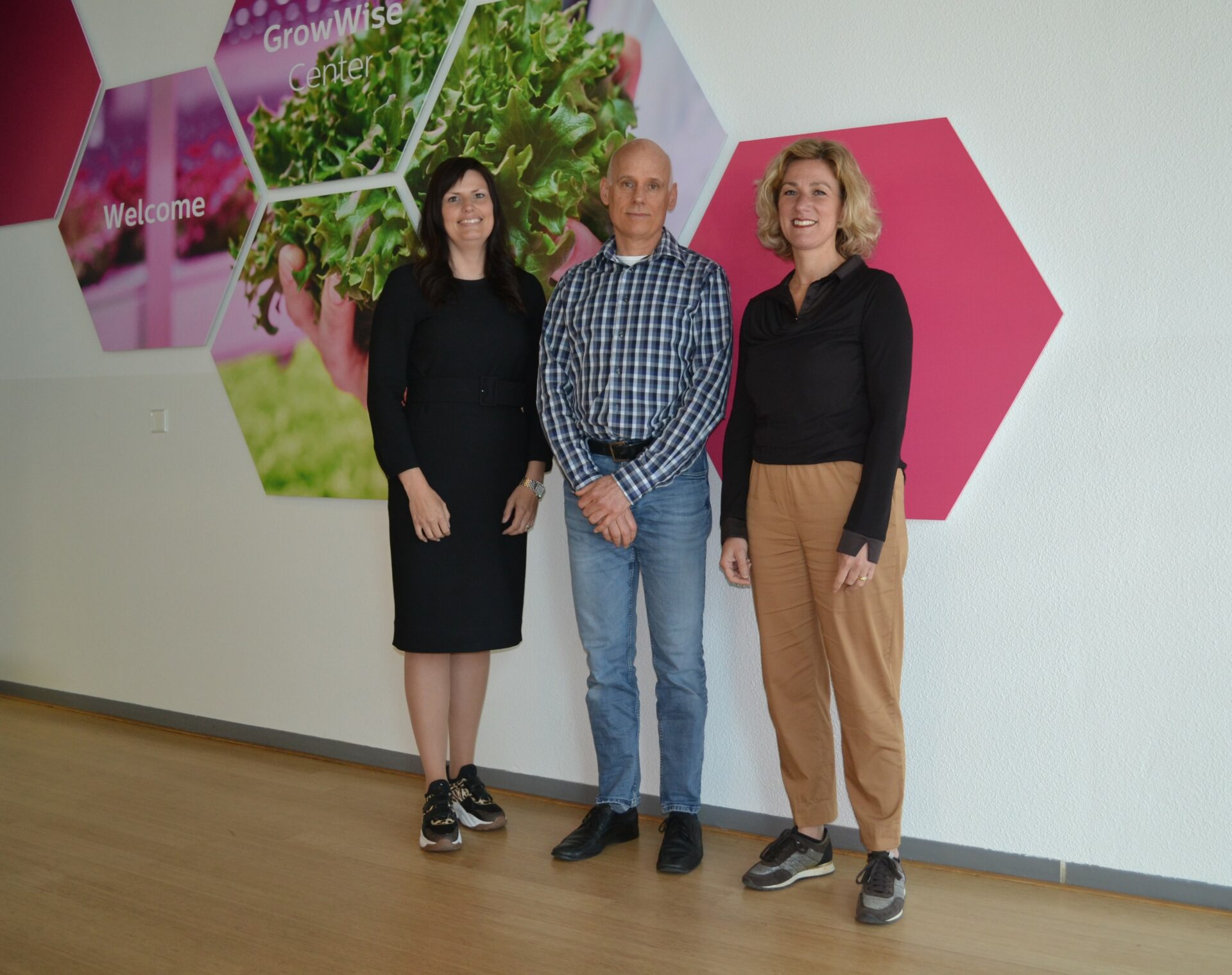
Carel Vereijken, Consumer and Market Insights Manager at BASF’s Vegetable Seeds Business, emphasises the fact that consumer wishes are becoming increasingly important. In any form of agriculture. “That’s because consumer demand is becoming increasingly diverse. That’s why you need to know exactly what you’re going to be offering in advance.”
He indicates that vertical farming is generally more expensive than farming out in the open air. Although these higher costs should definitely be seen as a temporary disadvantage, the price will undoubtedly lower as we gain more knowledge and further professionalise the cultivation process, especially if you look at the actual costs because healthier food will ultimately lead to fewer healthcare costs.
Nevertheless, realising a healthy margin will still continue to be essential. “And of course, that’s only possible if you deliver exactly what the consumer wants, and you also know he’s willing to pay that little bit more. Plus vertical farming will allow you to focus the entire system on the production of a specific vegetable. So you need to be 100% sure about what you want to produce.”
However, Signify has noticed that vertical farming project investors often still don’t have a clear picture of their customer’s wishes and requirements. ”Even though your customers and their wishes – for example in terms of taste, shelf life and weight – are actually the ones who’ll be determining how you can set up a vertical farm most effectively. We are now definitely starting to make some progress where this is concerned, but we still have a long way to go”, according to Janssen.
Gaining an insight into what our global consumers and chain parties need, that’s what BASF’s Vegetable Seeds Business’ Market and Consumer Insights team, which sells vegetable seeds under the Nunhems brand name, focuses on. “As a company, we can supply plants which are resistant to certain diseases and produce seeds which a grower can easily work with – possibly because of high yields, according to Carel Vereijken, but the taste is certainly also an important argument for the consumer when buying fruits and vegetables. However, the taste isn’t particularly high on the list of investors’ priorities in vertical farming projects, even though there are a wealth of opportunities here.”
Vereijken is of the opinion that taste preferences will differ per culture and this will also depend on what people have become accustomed to. “A product like bitter melon, for example, is particularly popular in India. People are used to it and therefore eat it regularly, also because it’s claimed this product is supposed to offer health benefits. However, this vegetable is incredibly bitter and people from other countries are less used to its taste. Another striking example is the tomato in Italy. The tomato represents the basis of Italian cooking. This has resulted in the tomato’s exact taste and aroma being incredibly important to Italian consumers. What a tomato tastes like is certainly also important to Dutch people, but they are generally a little less fussy.”
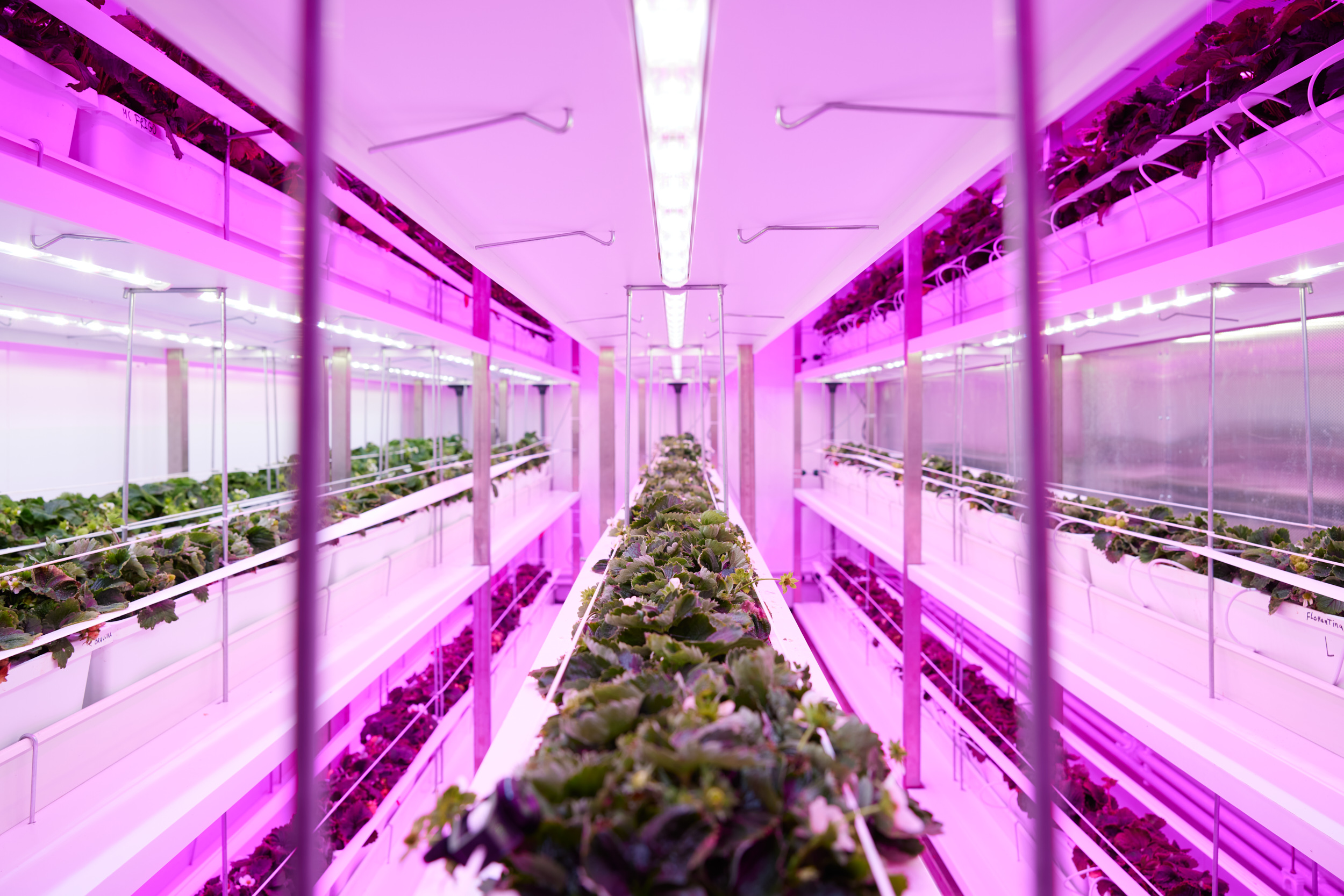
Signify and BASF’s Vegetable Seeds Business will be working together more intensively, which will allow them to respond to consumers’ and chain parties’ wishes more effectively. This should help to make optimal use of all the vertical farming opportunities on offer. “Just think, for example, about the specific development of vegetable seeds and light recipes for vertical farming,” Vereijken says. “We could grow seeds which require more or less water, which will ultimately allow us to optimally link into the local conditions. But, above all else, we want to introduce seeds to the market which meet consumers’ tastes and health wishes. You will need the right light and cultivation recipes to draw out specific properties – like a high vitamin C content, for example. This is an area where BASF and Signify can strengthen each other.”
Anne Jancic indicates that specific seeds are already being selected for vertical farming projects, but breeding isn’t yet focused on this. “That’s our ultimate dream; that this way of growing is going to take off to such an extent that special seeds will be grown for it. And if these seeds contain the right properties, we’ll have all the tools and know-how at our disposal to extract these with our light recipes. Research conducted in our Philips GrowWise research centre has also shown that things like light spectra, intensity and uniformity play a crucial role in growing fruit and vegetables with specific characteristics. This is incredibly attractive, as it also allows for the introduction of distinctive products which will create extra shelf space.”
Vereijken adds that it isn’t merely the seed’s properties and the light recipe which determine the end product. “It goes without saying other factors play a role too. This includes, for example, substrate, nutrition, the cultivation period, etc. It’s a total picture.”
The percentage of vegetables globally grown in daylight-free cultivation is currently still limited; Signify estimates this only concerns a few percent of the total vegetable production. The company has identified clear growth potential for vertical farming. Especially because the need for food security and self-sufficiency has significantly grown, particularly since corona. According to Janssen, the Gulf region, in particular, is an extremely interesting area for vertical farming. “After all, the hot, dry climate here makes it impossible for food to be grown in a greenhouse or out in the open field. Plus the Gulf region’s residents are generally quite wealthy and willing to pay for healthy and sustainable food. Health really is a theme here.”
As an added benefit, all the required energy can be generated by the sun in the Gulf. “And the lack of water is not an issue with vertical farming either, as you can easily reuse water and will therefore be working in an extremely sustainable manner.”
The first projects are already being worked on. For example, Signify is involved with the Madar Farms project in the Abu Dhabi port area together with Certhon. The first phase of 50,00m² is under construction. This indoor farm will finally consist of a total surface area of 40,000 m². Madar Farms focuses on the cultivation of tomatoes and micro-cresses.
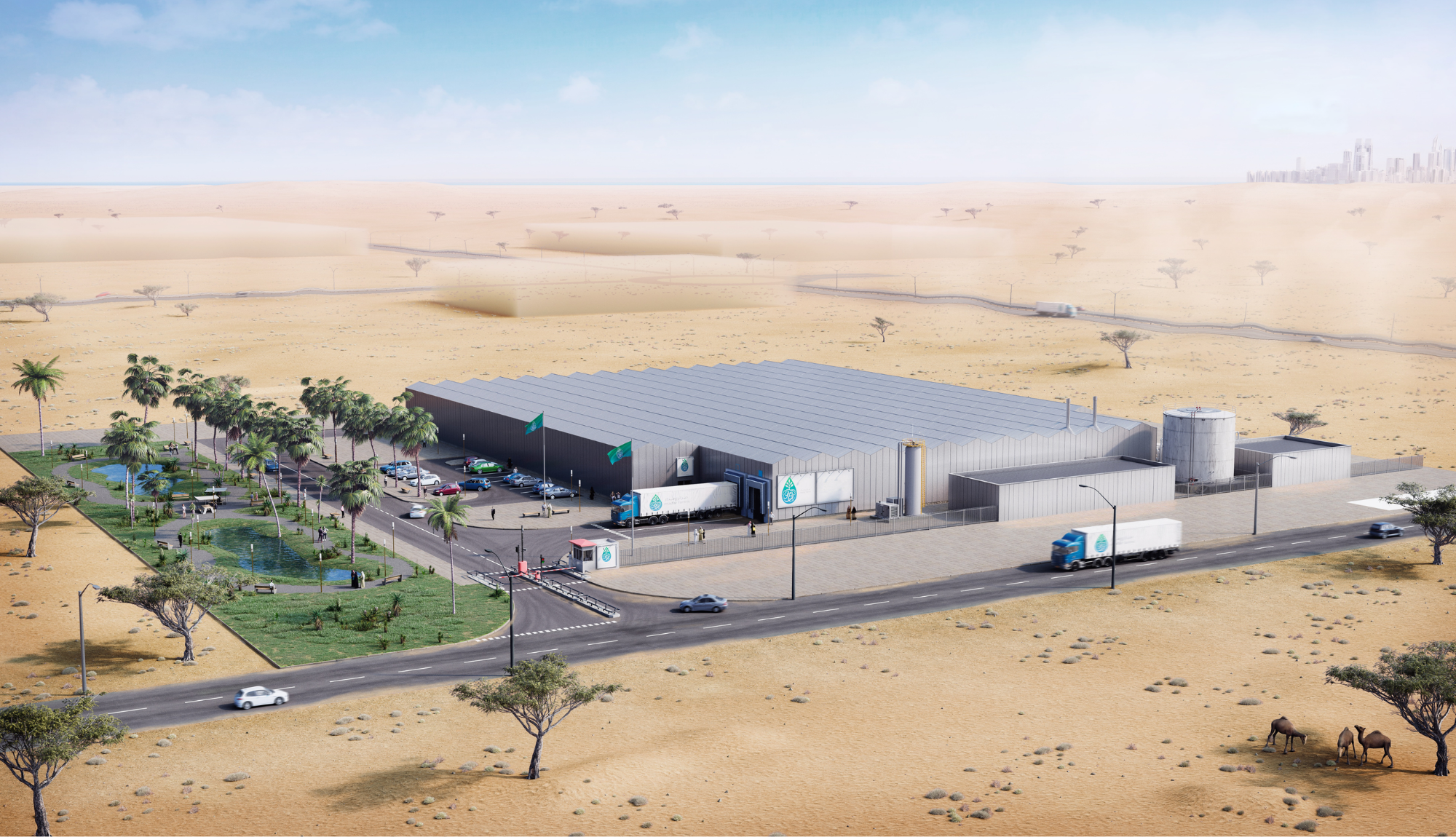
Many vertical farming projects are now also being launched in the United States. This has everything to do with the fact that large amounts of food have to be transported across long distances there. “This inevitably means a loss of taste and freshness, plus it’s anything but sustainable. Fewer and fewer Americans are now happy to simply accept this and they certainly also attach a great deal of value to locally produced products. The number of vertical farming projects in the United States will therefore undoubtedly continue to grow during the forthcoming years; we’re involved with, for example, the highly acclaimed 80 Acres project in Ohio. Europe and various Asian countries are now also showing an increasing interest in this method of growing.”
Anne Jancic added that how cleanly and safely vertical farms can produce also represents a very important advantage. Even though consumers in Northwestern Europe generally don’t have any doubts or concerns about how healthy and safe the food on the shelves is, the Japanese, for example, are less convinced. “Consumers in Japan are genuinely really concerned about the safety of their food. They fear that vegetables grown outdoors will, for example, contain pesticides, or may even have been contaminated. Growing in vertical farms effectively removes many of these concerns. That’s an important reason why many vertical farming projects are now being set up in Japan.”
Despite the advantages mentioned, those involved know there are certainly also plenty of hurdles to overcome in order to be able to take advantage of the opportunities offered by vertical farming. This includes the fact that the costs associated with vertical farming projects will need to be reduced, Janssen emphasises. “This way of growing is now even more expensive than growing in a greenhouse. It’s important to reduce the total system costs in order to make vertical farming more interesting. This can be realised by integrating the various different components – climate systems, lighting, etc – more effectively. But continuing to increase production is an option too, as this will allow for the costs per unit of product to be reduced.”
Anne Jancic feels it would be good to make better use of the synergies between greenhouse horticulture and vertical farming. “Greenhouse gardeners can grow very efficiently; definitely something initiators of vertical farming projects can learn from. On the other hand, greenhouse horticulture could also learn a thing or two from vertical farming; for example in terms of raising capital.”
The employment provision in vertical farming projects is another issue. Because even though automation is easier with this growing method, it goes without saying knowledge and experience are still needed. “These kinds of projects need people who know something about cultivation, but who can also combine it with technology and know how the two things can affect each other. There are still nowhere near enough people who have this expertise at their disposal. That’s certainly a challenge we need to rise to as well.”
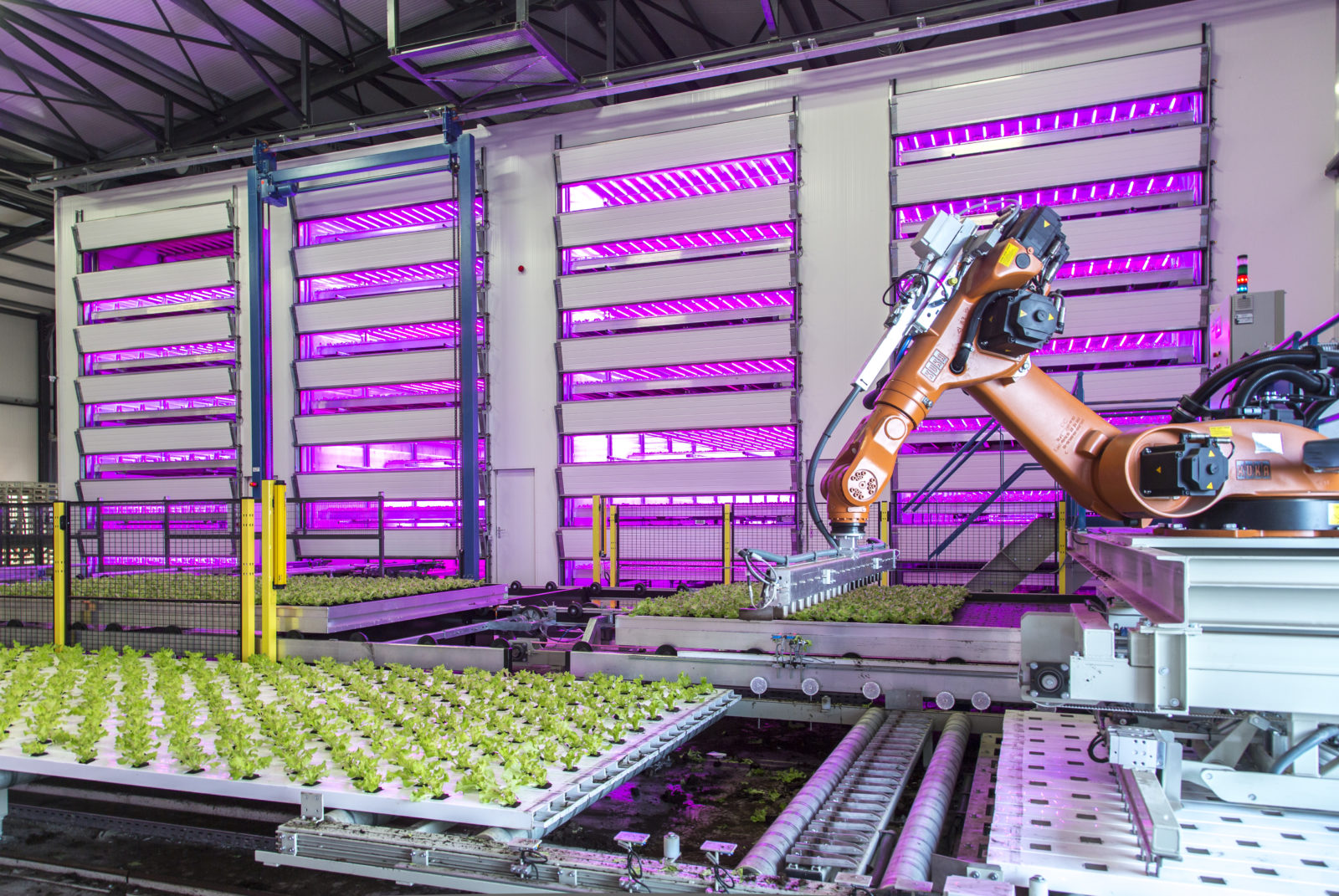
Janssen states there’s also a lack of standardisation where setting up vertical farms is concerned. “On the one hand there are companies which build and develop everything themselves, whilst on the other hand, you also see parties which integrate all kinds of existing systems to realise their farm. A party like Dutch Greenhouse Delta, of which Signify is also a partner, helps to realise more collaborations and unity and is therefore accelerating the advance of vertical farming. After all, the development will suffer horrendous delays if everyone suddenly starts reinventing the wheel again. In addition, DGD can play a key role in opening doors to government authorities, investors and retail for the realisation of vertical farming projects.”
According to Signify’s expert, Dutch Greenhouse Delta can also fulfil an important role in raising awareness about the opportunities presented by vertical farming. “There’s an awful lot to gain. And we don’t just have one cake to share around, but several. Working together will allow us to capitalise on these opportunities faster and more effectively.”
Europa 1
2672 ZX Naaldwijk
The Netherlands
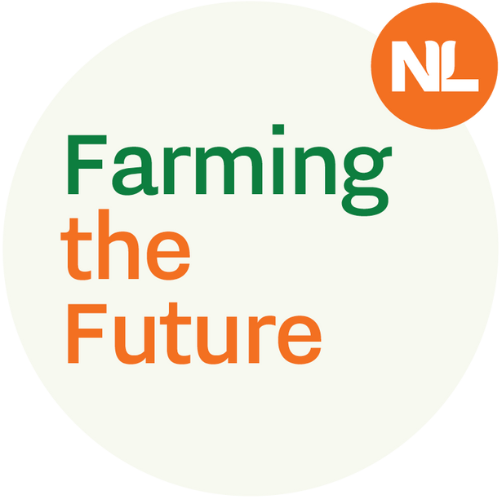
All rights reserved 2025